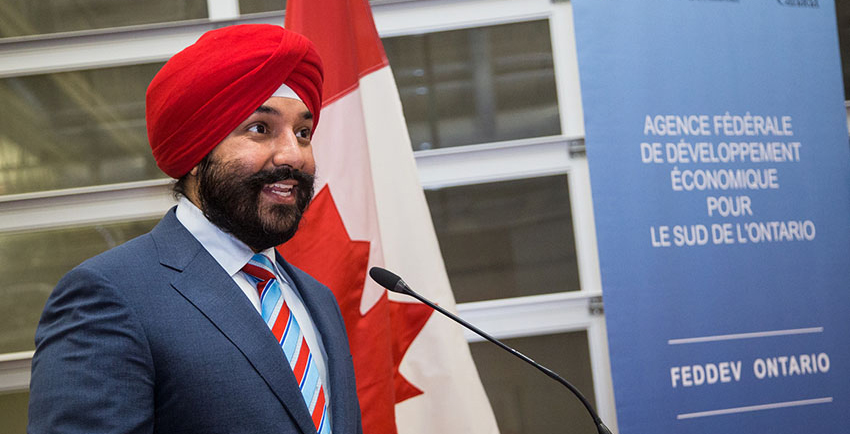
Leftover spectrum from previous Canadian auctions may soon be put to good use.
Canada’s Ministry of Innovation, Science and Economic Development (ISED) has initiated a consultation on the licensing of unassigned or returned spectrum licenses in the 700MHz, Wireless Communications Services (WCS), Personal Communications Services (PCS), 1670-1675MHz (I Block) and Broadband Radio Services (BRS)- 2500MHz bands.
The Ministry, led by Navdeep Bains, has three stated objectives for the allocation of these residual licenses: to foster innovation and investment, to support sustained competition and to facilitate deployment and availability of services across the country, including rural areas.
“This spectrum will support the development of Canada’s digital economy and the Innovation and Skills Plan’s priorities by enabling all Canadians to participate in the digital economy,” the ISED writes in its consultation.
The licenses set to go to auction are all leftover from previous auctions. The 700MHz band, which Rogers relies on for its LTE service and which Shaw recently invested in through a purchase from Quebecor, was auctioned in August 2015. The remaining blocks of spectrum that ISED plans to auction are situated in the Yukon, Nunavut and Northwest Territories.
“This spectrum will support the development of Canada’s digital economy.”
The 2500MHz band went up for auction in May 2015. In total, there are 62 licenses from that band that ISED proposes to auction in areas all across Canada, including the North.
Four licenses in the 2300MHz band are set to become available in Ontario, Saskatchewan, Quebec and Nunavut.
Meanwhile, two licenses in the 1910-1915/1990-1995 MHz (PCS) band in New Brunswick and Northern Ontario are set to join the group, as are eight licenses spanning across Canada in the 1670-1675 MHz (I Block ) band.
ISED is proposing to use a sealed‑bid auction format in which all bidders simultaneously submit sealed bids, so that no bidder knows the bid of any other participant. The Ministry suggests this is the simplest format, and will maximize efficiency for stakeholders
The Ministry also outlined proposed opening bids, revealing much reduced starting bids in Northern areas in comparison to higher population areas.
Additionally, it noted that there should be no discussion of tower sharing between operators until after the public announcement of provisional licence winners by ISED.
ISED notes that comments are being sought on all aspects related to the licensing of this spectrum, and will be taken until September 5th, 2017.
Correction July 10, 2017: ISED initially referenced AWS-3 as one of the types of spectrum license available, but the Ministry has reached out to MobileSyrup that was an error. The article has been updated accordingly.
Source: ISED


